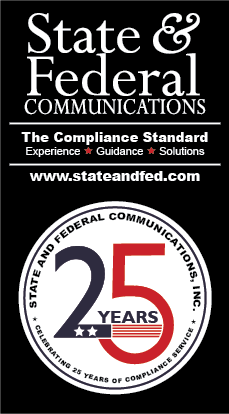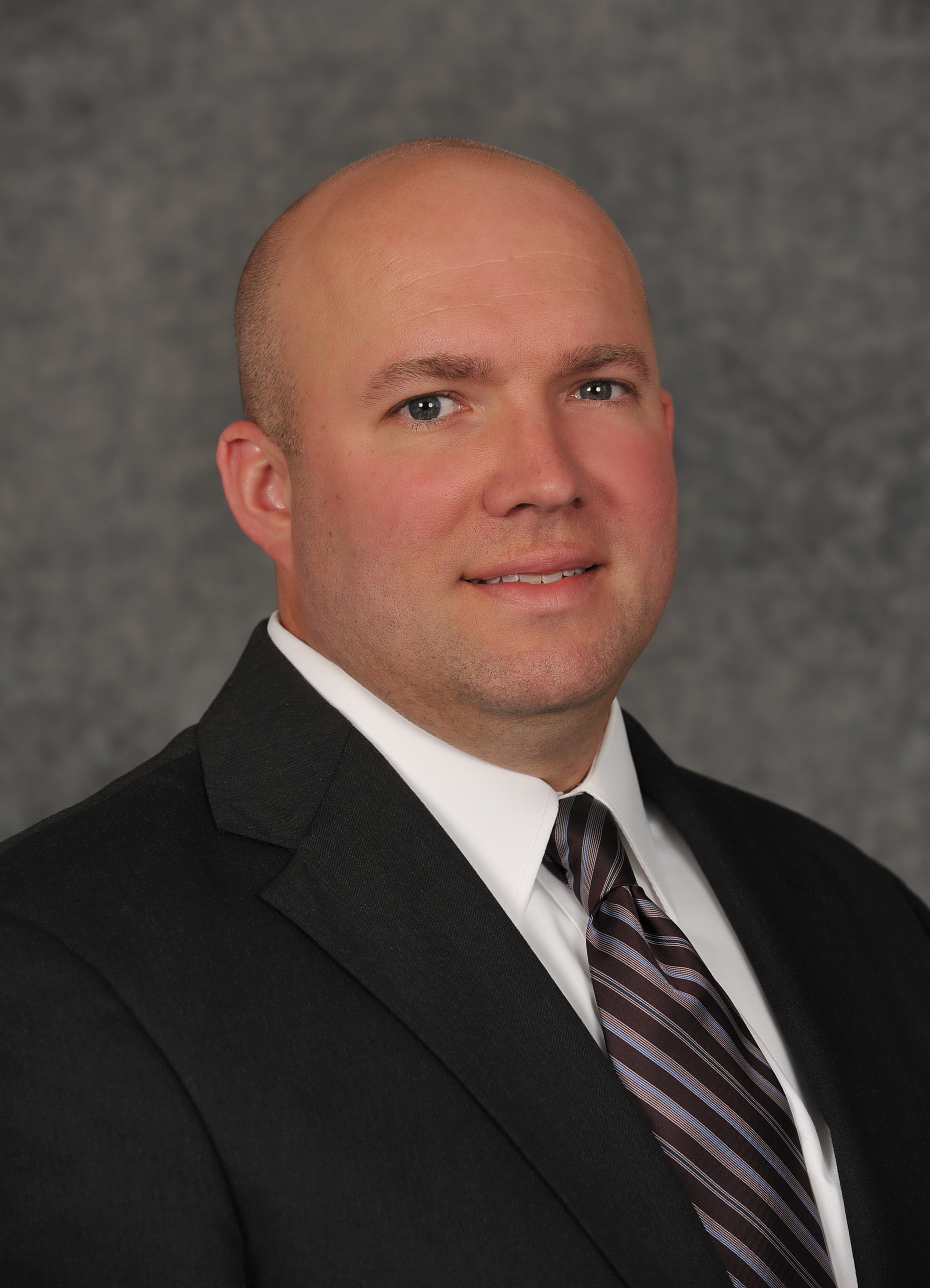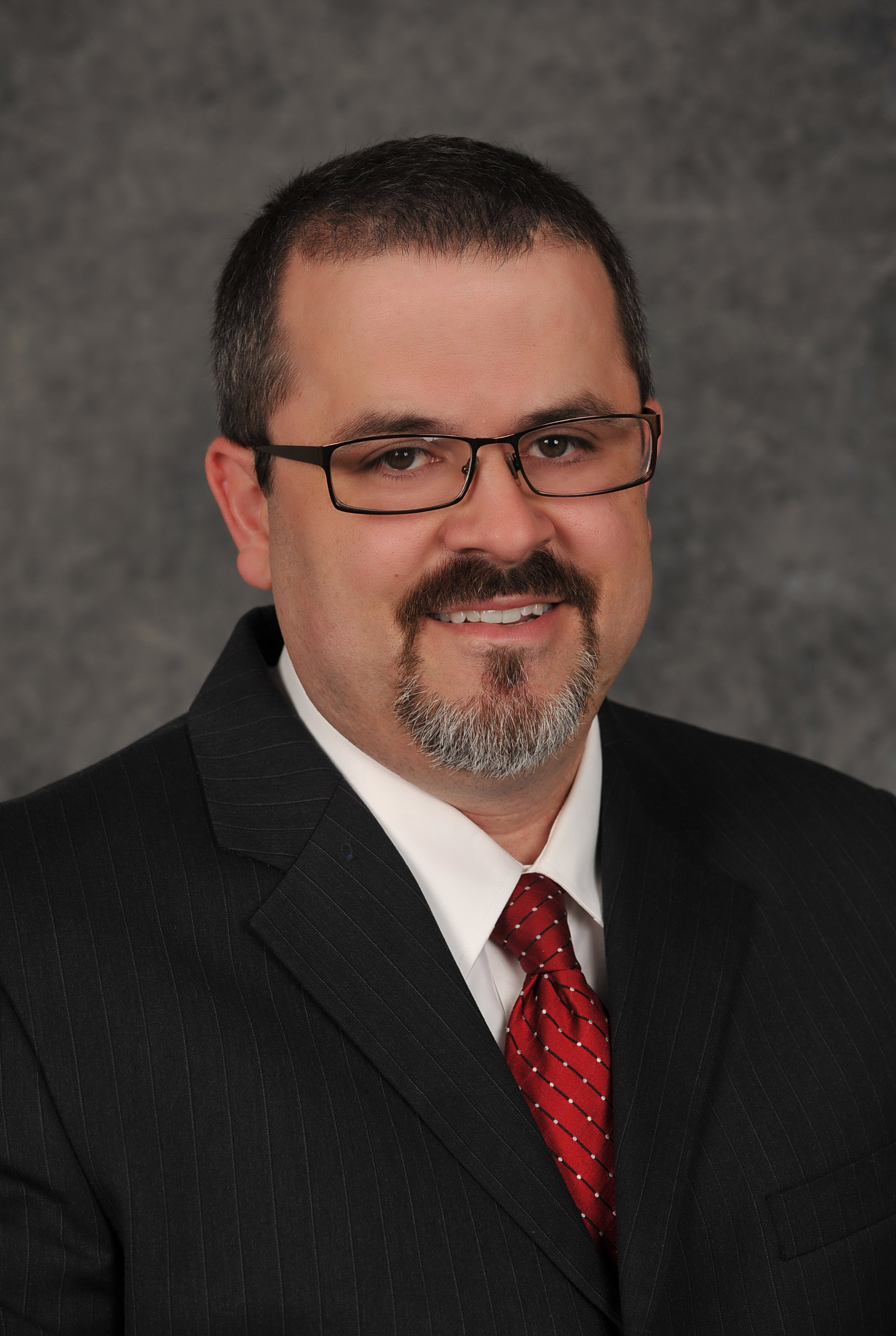 |
 |
E-News from State and Federal
Communications, Inc.
OCTOBER
2018
Nellie Tayloe Ross—
First Female Governor in the US
 |
|
We are continuing our series of women who paved the
way in being elected. Today, we will learn about
Nellie Tayloe Ross, the first woman elected governor
in the country, which was a huge step for gender
equality and allowed women to pay bigger roles in
our government.
Nellie Tayloe Ross, a Missouri native, is one of the
most iconic women in the history of our government.
She had done amazing things in her lifetime, such as
being the first women director of the U.S. Mint, and
more famously, becoming the first women governor of
Wyoming.
Nellie decided to run for governor after the passing
of her husband, William Ross, due to appendicitis.
Nellie was told to not run since it was unorthodox
for a woman to be a governor. Being a governor was a
man’s role. Boy, how many times have I heard that
line.
She heard the naysayers, and decided to keep pushing
her limits, and by doing so, she won her election by
8,000 votes and became the 14th governor of Wyoming,
serving from 1925-1927. By becoming the first women
governor, she helped open the door to other women to
fight for gender equality.
Nellie ran for governor for her second term, but she
did not win, losing to Frank Emerson. After losing
in the election she traveled across the West and
Midwest regions of the United States giving speeches
until 1928. Nellie then became the director of the
women’s division for the National Democratic
Committee. In 1933, US President Franklin D.
Roosevelt made Nellie the director of the U.S. Mint,
overseeing the creation/retiring of coins or bills.
She served until her 1953 retirement.
Nellie was very involved in politics in her lifetime
and helped fight for gender equality in the United
States. She didn’t always have it easy, but Nellie
fought because she knew how important her fight was.
She has been a hero to many, and an icon to all.
We love learning about these great historical women
of our past. Check this column next month to read
about another pioneer.
Elizabeth Z. Bartz
President and CEO
@elizabethbartz |

Ohio’s JLEC Opinion Limits Rideshare Travel
Paid for by Lobbyists
Alexandra Vernis, JD
Research Associate
 The
Ohio Joint Legislative Ethics Committee (JLEC) issued an opinion imposing
stricter rules on Ohio lawmaker travel. The opinion finds travel in a
ridesharing vehicle (e.g., Lyft, Uber) to be covered under the definition of
common carrier for purposes of the lobbyist gift restriction on travel.
Legislators and legislative employees are prohibited from accepting travel
expenses from a lobbyist unless such travel expenses are incurred for
participation in a panel, seminar, or speaking engagement; or were incurred
at a meeting or convention of a national organization of which any state
agency or state institution of higher education is a dues-paying member. The
Ohio Joint Legislative Ethics Committee (JLEC) issued an opinion imposing
stricter rules on Ohio lawmaker travel. The opinion finds travel in a
ridesharing vehicle (e.g., Lyft, Uber) to be covered under the definition of
common carrier for purposes of the lobbyist gift restriction on travel.
Legislators and legislative employees are prohibited from accepting travel
expenses from a lobbyist unless such travel expenses are incurred for
participation in a panel, seminar, or speaking engagement; or were incurred
at a meeting or convention of a national organization of which any state
agency or state institution of higher education is a dues-paying member.
The opinion
permits legislators and legislative employees to ride with a lobbyist in a
ridesharing vehicle for personal travel if the legislator or legislative
employee reimburses the lobbyist for their portion of the total fare within
seven days of accepting the ride. Alternatively, legislators and legislative
employees may directly pay the ridesharing service for their portion of the
fare. Lobbyists may continue to offer legislators and legislative employees
rides in their personal or rented vehicles for trips not exceeding 50 miles
one way.
This advisory
opinion stemmed from an ongoing federal investigation into former Ohio House
Speaker Cliff Rosenberger and his ties to payday lending lobbyists. Through
a federal subpoena and search warrant, Rosenberger was found to have
traveled with lobbyists both around Ohio and abroad. Ohio law requires
lobbyists to report travel worth more than $25 purchased for legislators.
Lawmakers are also required to disclose the source of their travel. Records
released from the ongoing investigation hint that a corruption case is being
built against Rosenberger and the payday industry lobbyists with whom he has
taken trips.
The
requirements of the recent opinion do not apply to or affect any ridesharing
that might have occurred before its adoption on September 10, 2018.
[The details for this article have been updated on our website in the Gift
Law section of Lobbying Compliance Laws and Procurement Lobbying Compliance
Laws for Ohio.] |
 Summary of Changes UPDATE Summary of Changes UPDATE
Note Recent Changes to
Compliance Regulations
Michael Beckett, Esq., Research
Manager

COLORADO:
The Office of Secretary of State cleared and certified
Initiative 173 for the November 6 general election ballot. The
ballot measure proposes amending the state constitution regarding
campaign contribution limits. If passed, candidates in a race may
accept contributions from individuals five times the limit
authorized in the state constitution if at least one candidate loans
or contributes $1 million to his or her own campaign, to a committee
to support or oppose any candidate in the same election, or to any
committee to influence the candidate’s own election.
MASSACHUSETTS: The state Supreme Judicial Court ruled
unanimously to uphold the state’s prohibition on corporate
contributions this week. Rick Green, the Republican nominee for the
state’s Third Congressional District seat, owns 1A Auto Inc., one of
the companies asserting the ban discriminated against businesses’
right to free speech. The Massachusetts contribution ban applies to
corporations and business entities but does not extend to unions or
nonprofits. Attorneys for Green and 1A have stated their intention
to petition the U.S. Supreme Court to hear the case.
MISSOURI:
The 8th District Court of Appeals upheld a 2017 federal court
ruling striking down a prohibition on political action committees
(PACs) donating to other PACs. The PAC-to-PAC prohibition was part
of a voter-passed constitutional amendment in 2016, but the appeals
court found the prohibition to be a First Amendment violation. The
ruling does not invalidate other aspects of the 2016 changes,
including the $2,600 contribution limit to state candidates from
PACs and individuals.
NEW YORK,
NEW YORK: City Council passed legislation establishing a
Charter Revision Commission to draft a new or revised City Charter.
On September 4, the commission approved three ballot questions to be
approved by voters in November. One ballot measure would reduce
contribution limits for all candidates and amend public matching
funds for candidates participating in the public financing program.
The other ballot measures involve civic engagement and community
boards.
OKLAHOMA:
The Ethics Commission adopted rules for the second time this year.
In February, the commission submitted its 2018 Promulgated Ethics
Rules to the governor and both houses of the Legislature. Proposed
changes included a revolving door provision prohibiting elected
state officers and chief administrative officers from lobbying for
two years following their terms of office or service, new rules
regarding the due dates of electronic filings, and revised reporting
periods for candidate election reports and independent expenditure
reports. The Legislature rejected those rules during the 2018
session. Despite the legislative rejection, the commission adopted
the rules again on September 14. If the Legislature chooses not to
reject the proposed rule changes again, all amendments will be
effective upon adjournment sine die of the 2019 regular legislative
session.
|
Legislation We Are
Tracking
At any given time, more than 1,000
legislative bills, which can affect how you do business as a government
affairs professional, are being discussed in federal, state, and local
jurisdictions. These bills are summarized in State and Federal
Communications' digital encyclopedias for lobbying laws, political
contributions, and procurement lobbying and can be found in the client
portion of our website.
Summaries of major bills are also included
in monthly email updates sent to all clients. The chart below shows the
number of bills we are tracking in regard to lobbying laws, political
contributions, and procurement lobbying.
| |
Total bills |
Number of Jurisdictions |
Passed |
Died |
Carried over
to
2019 |
|
Lobbying Laws |
410 |
49 |
23 |
217 |
6 |
|
Political Contributions |
693 |
52 |
58 |
395 |
10 |
|
Procurement Lobbying |
553 |
51 |
32 |
297 |
7 |
|
 |
W E B S I T E
T I P
Our Lobbying Compliance Laws and Procurement Lobbying
Compliance Laws have extensive information addressing
the restrictions on giving gifts to public officials and
employees. This information has rules specific to gifts
given by lobbyists and those given by non-lobbyists.
Keep in mind that lobbyist employers may be treated the
same as lobbyists, the same as non-lobbyists, or could
be subject to additional rules aimed directly at
entities employing a lobbyist. To address all of these
possibilities, please review “Restrictions specific to
lobbyist employers.” Subscribers are now able to easily
locate gift rules applicable to lobbyists,
non-lobbyists, and lobbyist employers. |
|
Tip Sheet: Gift
Splitting and Reimbursement
We have a free tip sheet for you to
download. That’s right…FREE. Our newest tip sheet, “Gift Splitting
and Reimbursement” will help your government affairs team. How do
you know whether you are complying with all the rules and
restrictions? What are the benefits of splitting gift costs? How do
you avoid penalties? When should you ask for partial or complete
reimbursement? We are pleased to explain some of the best practices
for your company to consider.
Before you act, know your reporting
threshold and the actions you can take to keep in compliance with
the law. We are here to give you our new, FREE Tip Sheet to help you
develop a strategy and to gather support and resources. Please
click here to download. |
ASK THE
EXPERTS
State and
Federal Communications’ Experts Answer Your Questions
Here
is your chance to “Ask the Experts” at State and Federal
Communications, Inc. Send your questions to
experts@stateandfed.com.
(Of course, we have always been available to answer
questions from clients that are specific to your needs, and
we encourage you to continue to call or email us with
questions about your particular company or organization. As
always, we will confidentially and directly provide answers
or information you need.) Our replies are not legal advice,
just our analysis of laws, rules, and regulations.
|
 |
I have heard about new lobbyist
regulations in New York. What do I need to know to be
compliant when I file my reports? |
|
|
 |

The New York Joint Commission on
Public Ethics enacted comprehensive lobbying regulations
that take effect January 1, 2019. Bi-monthly lobbyist
reports filed in January 2019 will contain information
covering November and December 2018 and must conform to the
new regulations. You need to review and become familiar with
new requirements now.
Key elements of
the new regulations include some changes with how you report
the specific targets of your lobbying efforts...
Read the full article here
The information from this
response can easily be found on our website in the New York
entry of the Lobbying Compliance Laws publication. Please
do not hesitate to contact us if you have questions.
James
Warner, Esq., Sr. Compliance Associate
Click here to read ALL Ask the Experts
articles in full
Please fill out the small form to
gain access to all articles free!
Thanks.
Click here for subscription information
|
|
|
|
|
|

State and Federal
Communications, Inc.
Scrapbook -
September 2018
|
|
|
|
A random sighting of Cory
Booker at DCA.

Left to Right - Kevin Newman, Esq., Elizabeth Z.
Bartz,
and Senator Cory Booker, [D-NJ]

Senator Cory Booker, [D-NJ] with Alexandra
Vernis, JD.

Enjoying another
staff 10 year Anniversary.
This group includes all that have worked over 10
years at State and Federal Communications, Inc.
Our newest members include Myra Cottrill, Esq.,
James Warner, Esq., and Joseph May.
Congratulations. |
Happy Anniversary to the
following valued staff members:

Alexandra Vernis, JD
|

John
Cozine, Esq.
|

David Jones
|

George Ticoras, Esq. |

Jon Spontarelli
|

Jim Sedor
|

Kevin Newman, Esq.
|

Anthony Didion |
|
|
|
|

Plan to say hello at future
events where State and Federal
Communications, Inc.
will be attending and/or
speaking regarding compliance issues. |
|
|
October 3, 2018 |
GPN Agora Market Place, Washington, DC |
|
October 5, 2018 |
PAC PALS Outing, Washington, DC |
|
October
5, 2018 |
Leadership
Akron: Insight Akron, Akron, OH |
|
October
9, 2018 |
Akron
Press Club: Jim Renacci Event, Akron, OH |
|
October
9-11, 2018 |
Professional
Women in Advocacy Conference, Washington, DC |
|
October
13, 2018 |
Project
GRAD Achieving Dreams, Akron, OH |
|
October
18, 2018 |
Akron
Roundtable, Akron, OH |
|
October
25, 2018 |
Greater
Akron Chamber Candidates and Elected Officials Reception,
Akron, OH |
|
COMPLIANCE
NOW is published for our customers and friends.
Click here
to
SUBSCRIBE
or
click
here to UNSUBSCRIBE.
Click here to send us comments regarding
the COMPLIANCE NOW e-newsletter.
State and
Federal Communications, Inc. | Courtyard Square | 80 South
Summit St., Suite 100 | Akron, OH 44308 |
| 330-761-9960 |
330-761-9965-fax | 888-4-LAW-NOW|
http://www.stateandfed.com/

|
 |
The Mission of State
and Federal Communications is
to make sure that your
organization can say, "I Comply."
We are the leading
authority and exclusive information source on
legislation and regulations surrounding campaign finance
and political contributions; state, federal, and
municipal lobbying; and procurement lobbying.
Contact us to learn how
conveniently our services will allow you to say "I
Comply" for your compliance activities.
http://www.stateandfed.com |
www.stateandfed.com |
|